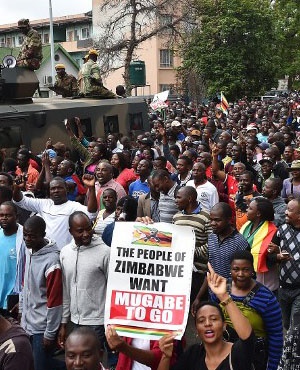Zimbabwe's upcoming elections on Monday will function as a yardstick of the Southern African Development Community's (SADC) institutional capacity to regulate "free and fair" elections in the region.
The world will be watching, but more notably, Zimbabweans have high expectations of SADC's capability to observe fairly the election and, consequently play a significant role in legitimising the election result.
Zimbabwe has had a history of violent elections. Arguably the country's first contested election was in 2008, and the time around the election was characterised by extreme political violence, alleged killings and acts of intimidation by the incumbent.
Both SADC and South Africa were criticised for their inaction. The 2008 elections took place against the backdrop of the country's dire economic situation. These elections were therefore expected to provide then president Robert Mugabe with his toughest electoral challenge yet. Because a majority – which neither Mugabe nor Morgan Tsvangirai attained – elects the president, it necessitated a run-off. As a result, the interim period between the first and second rounds of elections was characterised by political violence, most of which the Zanu-PF was blamed for.
In 2013, the Zanu-PF again won with an overwhelming two-thirds majority. SADC did not confirm the legitimacy of the election result and failed to observe the acts of political intimidation by the Zanu-PF that could've influenced the outcome of the elections, exposed its inadequacy.
Despite the violent nature of the 2008 elections, SADC still did not intervene in 2013. It seemingly failed to protect the democratic principles meant to govern the election process, despite its mandate being to create social development networks to address social imbalances in the region, while promoting trade and regional integration. The management of elections in the region acts as a catalyst for achieving these objectives.
The same scenario has played out in Lesotho. The Kingdom of Lesotho has experienced six military coups over the past four decades. All six coups happened because of disputes between the ruling and opposition parties over election results, which led to political conflict. SADC has failed to curb the recurrence of these coups. Election-related conflict seems to be SADC's weakness, and hence why so much regional emphasis is needed on the upcoming elections.
This year, Zimbabwe's elections are an opportunity for SADC to reestablish its institutional capability to regulate free and fair elections in the region. As the country heads to the polls for the very first time in a new political theatre, it signals a new political dispensation.
From a regional perspective, the Zimbabwean election will be carrying the hopes and expectations of the whole SADC region. It is important that the process and outcome set precedence for the conduct and regulation of other elections in the region. Hence, it is particularly significant that SADC observes a free and fair election in the country as it will promote the ability of the region to hold regular, legitimate elections and clear the path for South Africa's election in 2019.
- Letlhogonolo Letshele is a Masters student in Politics and International Relations at the University of Johannesburg.
